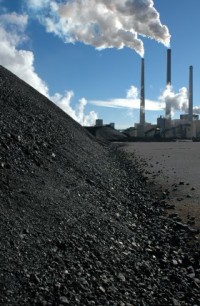By Sarah Palin in the Washington Post
There is no shortage of threats to our economy. America’s unemployment rate recently hit its highest mark in more than 25 years and is expected to continue climbing. Worries are widespread that even when the economy finally rebounds, the recovery won’t bring jobs. Our nation’s debt is unsustainable, and the federal government’s reach into the private sector is unprecedented.
Unfortunately, many in the national media would rather focus on the personality-driven political gossip of the day than on the gravity of these challenges. So, at risk of disappointing the chattering class, let me make clear what is foremost on my mind and where my focus will be:
I am deeply concerned about President Obama’s cap-and-trade energy plan, and I believe it is an enormous threat to our economy. It would undermine our recovery over the short term and would inflict permanent damage. American prosperity has always been driven by the steady supply of abundant, affordable energy. Particularly in Alaska, we understand the inherent link between energy and prosperity, energy and opportunity, and energy and security. Consequently, many of us in this huge, energy-rich state recognize that the president’s cap-and-trade energy tax would adversely affect every aspect of the U.S. economy.
There is no denying that as the world becomes more industrialized, we need to reform our energy policy and become less dependent on foreign energy sources. But the answer doesn’t lie in making energy scarcer and more expensive! Those who understand the issue know we can meet our energy needs and environmental challenges without destroying America’s economy.
Job losses are so certain under this new cap-and-tax plan that it includes a provision accommodating newly unemployed workers from the resulting dried-up energy sector, to the tune of $4.2 billion over eight years. So much for creating jobs. In addition to immediately increasing unemployment in the energy sector, even more American jobs will be threatened by the rising cost of doing business under the cap-and-tax plan. For example, the cost of farming will certainly increase, driving down farm incomes while driving up grocery prices. The costs of manufacturing, warehousing and transportation will also increase.
The ironic beauty in this plan? Soon, even the most ardent liberal will understand supply-side economics. The Americans hit hardest will be those already struggling to make ends meet. As the president eloquently puts it, their electricity bills will “necessarily skyrocket.” So much for not raising taxes on anyone making less than $250,000 a year.
Even Warren Buffett, an ardent Obama supporter, admitted that under the cap-and-tax scheme, “poor people are going to pay a lot more for electricity.” We must move in a new direction. We are ripe for economic growth and energy independence if we responsibly tap the resources that God created right underfoot on American soil. Just as important, we have more desire and ability to protect the environment than any foreign nation from which we purchase energy today.
In Alaska, we are progressing on the largest private-sector energy project in history. Our 3,000-mile natural gas pipeline will transport hundreds of trillions of cubic feet of our clean natural gas to hungry markets across America. We can safely drill for U.S. oil offshore and in a tiny, 2,000-acre corner of the Arctic National Wildlife Refuge if ever given the go-ahead by Washington bureaucrats. Of course, Alaska is not the sole source of American energy. Many states have abundant coal, whose technology is continuously making it into a cleaner energy source. Westerners literally sit on mountains of oil and gas, and every state can consider the possibility of nuclear energy.
We have an important choice to make. Do we want to control our energy supply and its environmental impact? Or, do we want to outsource it to China, Russia and Saudi Arabia? Make no mistake: President Obama’s plan will result in the latter.
For so many reasons, we can’t afford to kill responsible domestic energy production or clobber every American consumer with higher prices. Can America produce more of its own energy through strategic investments that protect the environment, revive our economy and secure our nation? Yes, we can. Just not with Barack Obama’s energy cap-and-tax plan. See the story here.
Climate Depot Exclusive
Former Vice President Al Gore declared that the Congressional climate bill will help bring about “global governance.” “I bring you good news from the U.S.,” Gore said on July 7, 2009 in Oxford at the Smith School World Forum on Enterprise and the Environment, sponsored by UK Times.
“Just two weeks ago, the House of Representatives passed the Waxman-Markey climate bill,” Gore said, noting it was “very much a step in the right direction.” Gore touted the climate bill, claiming it “will dramatically increase the prospects for success” in combating what he sees as the “crisis” of man-made global warming.
“But it is the awareness itself that will drive the change and one of the ways it will drive the change is through global governance and global agreements.” (Editor’s Note: Gore makes the “global governance” comment at the 1min. 10 sec. mark in this UK Times video.)

Gore’s call for “global governance” echoes former French President Jacques Chirac’s call in 2000. On November 20, 2000, then French President Chirac said during a speech at The Hague that the UN’s Kyoto Protocol represented “the first component of an authentic global governance.” “For the first time, humanity is instituting a genuine instrument of global governance,” Chirac explained. “From the very earliest age, we should make environmental awareness a major theme of education and a major theme of political debate, until respect for the environment comes to be as fundamental as safeguarding our rights and freedoms. By acting together, by building this unprecedented instrument, the first component of an authentic global governance, we are working for dialogue and peace,” Chirac added.

Former EU Environment Minister Margot Wallstrom said, “Kyoto is about the economy, about leveling the playing field for big businesses worldwide.” Canadian Prime Minster Stephen Harper once dismissed UN’s Kyoto Protocol as a “socialist scheme.”
‘Global Carbon Tax’ Urged at UN Meeting
In addition, calls for a global carbon tax have been urged at recent UN global warming conferences. In December 2007, the UN climate conference in Bali, urged the adoption of a global carbon tax that would represent “a global burden sharing system, fair, with solidarity, and legally binding to all nations.” “Finally someone will pay for these [climate related] costs,” Othmar Schwank, a global tax advocate, said at the 2007 UN conference after a panel titled “A Global CO2 Tax.”
Schwank noted that wealthy nations like the U.S. would bear the biggest burden based on the “polluters pay principle.” The U.S. and other wealthy nations need to “contribute significantly more to this global fund,” Schwank explained. He also added, “It is very essential to tax coal.”
The 2007 UN conference was presented with a report from the Swiss Federal Office for the Environment titled “Global Solidarity in Financing Adaptation.” The report stated there was an “urgent need” for a global tax in order for “damages [from climate change] to be kept from growing to truly catastrophic levels, especially in vulnerable countries of the developing world.”
The tens of billions of dollars per year generated by a global tax would “flow into a global Multilateral Adaptation Fund” to help nations cope with global warming, according to the report. Schwank said a global carbon dioxide tax is an idea long overdue that is urgently needed to establish “a funding scheme which generates the resources required to address the dimension of challenge with regard to climate change costs.”
‘Redistribution of wealth’
The environmental group Friends of the Earth advocated the transfer of money from rich to poor nations during the 2007 UN climate conference. “A climate change response must have at its heart a redistribution of wealth and resources,” said Emma Brindal, a climate justice campaigner coordinator for Friends of the Earth. See post and much more here.
By Alan Caruba
In early July the Sierra Club celebrated the fact that, “Today, 100 of those planned coal plants have been defeated or abandoned.” They crowed over the fact that a year ago there were plans for 150 new plants and that they had successfully thwarted the provision of electrical power around the nation. As for as the Sierra Club is concerned, “This milestone marks a significant shift in the way Americans are looking at our energy choices. Cities, states, businesses and electric utilities are all moving away from the polluting coal power of the past.”

Today’s coal-fired plants are all equipped with very expensive technology that eliminates the pollution of the past, “scrubbing” their massive stacks before any is emitted. They are not polluting anything, but they are providing affordable electrical energy.
Coal represents just a shade over fifty percent of all the electricity Americans use. It is so abundant here in America that the provision of those 150 plants would have ensured that the nation had a significant portion of the additional power it requires for a growing population and our manufacturing sector.
Why does the Sierra Club oppose coal-fired plants? It says that “carbon dioxide pollution, a main cause of global warming” is the reason, but CO2 is not a pollutant. It is the gas of life because without it not one single blade of grass or any other vegetation grows on planet Earth. Our food supply, crops and the livestock that depend upon them, is the result of CO2.
And, of course, there is NO global warming. The planet has been cooling for the past decade and the science of CO2 demonstrates that it plays no role whatever with regard to major climate trends. The Sierra Club’s opposition to coal-fired plants is entirely based on a LIE.
It doesn’t stop there, however. As far back as 1974, the Sierra Club has been opposed to nuclear energy as well. They called for “adequate national and global policies to curb energy over-use and unnecessary economic growth.”
“Unnecessary economic growth”? If a nation does not maintain its economic growth is also does not provide jobs. It does not have the means by which to fund defense, infrastructure, and to compete globally in manufacturing and exports. This is an idiotic policy, but not if your aim, your purpose is to attack the most essential element of growth, the provision of energy.
A visit to the Sierra Club website provides ample evidence of its objection to all forms of energy except the least practical and effective, the so-called “renewable” forms such as wind and solar. Even T. Boone Pickens who gambled on the largest wind farm in the Texas Panhandle has thrown in the towel, announcing that his $2 billion investment is now, in retrospect, rather foolish given the need to get the power from the farm to where it is needed. Pickens is now stuck with 687 giant wind turbines, each of which is taller than a 30-story building.
The same may be said of solar power that, like wind, is not dependable and must be located far from the transmission lines and the nation’s urban areas that are most in need of electricity. At what point will Americans begin to realize that the giant Green organizations like the Sierra Club, Friends of the Earth, and others stand in opposition to the very thing they most desperately need, energy? At what point will Americans begin to realize that failing to access its own vast natural resources, coal, oil and natural gas, is suicidal?
One hopes it will not be before the economy is so severely damaged that we cannot borrow or fund the coal-fired and nuclear plants that we need to keep us from being figuratively and literally in the dark? See blog post here.


